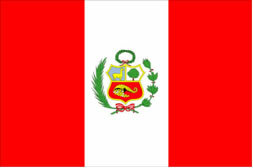O pre-salt discovered in Brazil it constitutes a large oil and natural gas reserve located in deep areas of the ocean. This reserve is located in an area of three sedimentary basins: Santos Basin, Campos Basin and Espírito Santo Basin. The discovery of the pre-salt was very important to ensure Brazil's self-sufficiency in relation to this fuel.
Location, depth and characteristics of pre-salt in Brazil
The pre-salt is an area in which organic matter accumulated millions of years ago. This accumulation resulted from the distancing of the African and American continents, providing the formation of a layer of salt with about two thousand meters thick. Temperatures in the pre-salt region are between 80 ºC and 100 ºC, in addition to being an area of high pressure. This causes the rocks present in this area to change, making the process of extracting the oil contained in these places difficult.
The pre-salt in Brazil is located on the coast, between the states of Espírito Santo and Santa Catarina. It is about 800 kilometers long and 200 kilometers wide. It is located at more than 7,000 meters below sea level.
Who discovered pre-salt?
The discovery of the pre-salt in Brazil was announced in 2006 by Petrobras. This state company confirmed in 2007 the existence of a large oil reserve under a thick layer of salt on the coast of the state of Rio de Janeiro.

In 2007, Petrobras confirmed the discovery of the pre-salt in Brazil, changing the course of the country's economic development.**
This discovery was the result of the cooperation process between Petrobras and international companies that were interested in the exploration of Petroleum and years of development of technologies to ensure Brazil's self-sufficiency in relation to this fossil fuel, as the country has always been dependent on imports of this product.
How was Brazil when the pre-salt was discovered?
In the period in which the Brazilian pre-salt was discovered, Brazil was experiencing a period of economic expansion. The world scenario pointed to an increase in oil demand. However, Petrobras became involved in political scandals, which ended up affecting investments in pre-salt exploration.
Thanks to its immense production potential, despite the conflicts, the reserve has not ceased to be attractive to the investor market. In 2010, Petrobras actually started the oil extraction process in the Campos Basin, more precisely in the Jubarte field, in the state of Espírito Santo. The beginning of this work gave the Brazilian economy a new perspective.
Pre-salt exploration
The Brazilian pre-salt was divided into several fields for exploration. According to data from the Ministry of Mines and Energy, the main oil exploration fields are located in the Espírito Santo and Santos Basins. The main ones are:
→ Tupi field, currently known as Lula's field;
→ Iara field;
→ Whale Park field.
In the region of these two basins, Petrobras drilled 31 wells. The Santos Basin holds the most productive wells. Of the ten wells with the best daily flow, nine are in this basin. An example is the Lula field, which is currently the most productive and has a daily average of 36,000 barrels of oil.
Oil extraction takes place in stages. Follow up!
1. First you need to find out where the oil is. To do this, a ship travels through the ocean towing cylinders of air that simulate an explosion, generating sound waves.
2. On ships, there are hydrophones, equipment capable of receiving sound waves and generating a codification, which is transformed into images with representations of the ground. Through these images, researchers are able to analyze whether there is oil in the area.
3. If there is oil, drilling begins, controlled so that the oil does not leak because of the great pressure. For this, drills with diamond pieces are used.
4. The salt layer that precedes oil is the biggest challenge. Horizontal perforations are made.
5. When oil is reached, an explosion is triggered between the rocks. Gases and liquids are injected that generate cracks, through which the oil can pass. It rises because of internal pressure.
6. As the temperature in the region where the oil is found is different from the temperature of ocean waters, a tube with thermal coating is used that connects the platform to the well.
7. The extracted oil is processed and stored on the platform ship and subsequently transported to the continent.
What is the importance of pre-salt for Brazil?
The discovery of pre-salt in Brazil places the country in a privileged situation, as oil exploration attracts the investor market. Exploring this reserve means giving a new direction to Brazil's economic development, as it encourages investment by companies national and international, boosts the production of technologies, stimulates professional training and the generation of opportunities for work. In addition, it also protects Brazil from possible energy crises.
Know more: The main sources of energy
Advantages and disadvantages of pre-salt in Brazil
→ Advantages
The profit obtained from oil exploration in the pre-salt area will help to improve infrastructure throughout the country.
Brazil will be able to carry out large works without having to rely on financial help from other countries.
Gasoline prices tend to fall.
There will be greater investment in research and technologies to make oil exploration feasible.
Many jobs will be created in industries linked to oil exploration and production.
As a fossil fuel, petroleum is not renewable. The profit obtained from the exploration, if well used, can make the use of alternative energy sources in Brazil feasible.
Brazil will no longer import oil and will become a major exporter, placing itself in a privileged position worldwide.
→ Disadvantages
With the discovery of this large oil reserve and its consequent abundance in the country, there will also be an increase in the emission of carbon dioxide into the atmosphere, as this gas is released during the burning of this fuel fossil. This contributes to increasing the greenhouse effect.
Possible leaks during oil extraction can cause irreversible damage to marine life.
Read too:Water pollution caused by oil spills
If the Brazilian government does not know how to manage this great discovery, foreign companies may want part of the reserve, and the oil will no longer belong to Brazil.
Dependence on the use of fossil fuel for energy generation causes environmental problems and, in the future, it may not be produced because it is a non-renewable source of energy. Thus, society will collapse if there is heavy dependence on oil.
___________________________
*Image credits: Antonio Scorza / Shutterstock
** Image Credit: Arnold Jr. / Shutterstock



